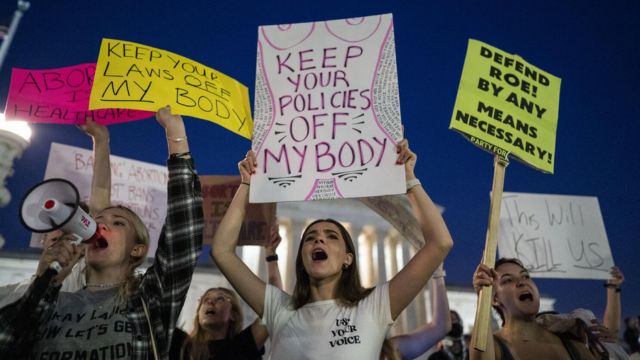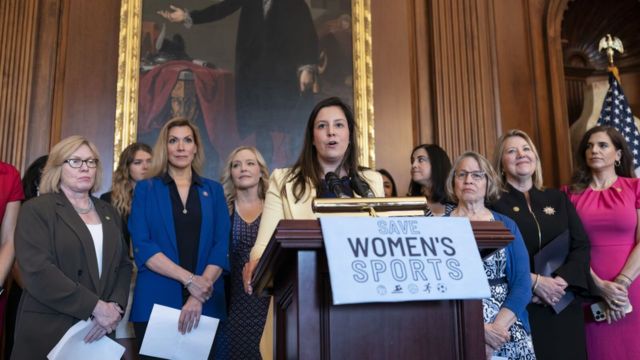In this undated image, a lab technician operates in vitro fertilization equipment. The destruction of frozen embryos may subject a person to civil damages, the Alabama Supreme Court decided on Friday, holding that embryos generated during the process might be regarded as people. (Photo courtesy of Getty Images)
Patients’ advocates worry that in vitro fertilization (IVF) may come to a stop in Alabama as a result of the Supreme Court of Alabama’s decision on Friday, which declared that frozen embryos outside of the womb are “children.”
According to Justice Jay Mitchell’s majority opinion, neither a 2018 state constitutional amendment requiring the state to “ensure the protection of the rights of the unborn child” nor an 1872 statute permitting civil lawsuits for the wrongful death of children made any exception for frozen embryos.
“Essentially, the term’minor child’ denotes an unborn or recently born’ individual member of the human species, from fertilization until the age of majority,” Mitchell said, explaining that this is how the Wrongful Death of a Minor Act interprets the term. “The definition of unborn children who are physically “in utero” is not restricted by anything in the Act. Rather, the Act gives rise to a claim for any “minor child’s” death, without restrictions or exceptions.
The ruling may make fertility clinics more open to legal action regarding frozen embryos and may make access to reproductive therapies more difficult.
The CEO of RESOLVE: The National Infertility Association, Barbara Collura, expressed her concerns on Monday, stating that she fears the ruling may discourage individuals in the state from pursuing IVF treatment because it is founded on a “wrongful death” lawsuit.
The way the court has determined the status of a fertilized egg will make it far more difficult for people to receive care for their infertility in Alabama, Collura said, not because more protections are being placed in place.
On Tuesday, March 7, 2023 in Montgomery, Alabama, members of the Alabama Supreme Court are seated before Governor Kay Ivey delivers the State of the State address. Chief Justice Tom Parker of Alabama, Associate Justices Greg Shaw, Tommy Bryan, William Sellers, Brady Mendheim, Associate Justice Sarah Stewart, Associate Justice Jay Mitchell, and Associate Justice Greg Cook are pictured from left to right. (For Alabama Reflector, Stew Milne)
The subject of the complaint was embryos kept at a Mobile fertility clinic. In 2020, a patient allegedly “managed to wander” into the reproductive clinic and took many frozen embryos out of the nursery, as claimed in the lawsuit. The frozen embryos were lost when the patient dropped them on the ground.
Plaintiffs in the case sued the clinic under the state’s Wrongful Death of a Child Act after successfully using embryos kept at the facility. Because the embryos did not meet the categories of “person” or “child,” a lower court that sided with the clinic rejected the lawsuit, concluding that it was not possible to prove wrongful killing.
But according to Mitchell, the clinic was requesting that the court “recognize an unwritten exception for extrauterine children in the wrongful-death context” and that “all children, born and unborn, without limitation” are covered by the legislation.
“Crafting a new limitation based on our own view of what is or is not wise public policy is not the role of this Court,” Mitchell wrote. “That is particularly true in situations like this one, when the people of this state have enacted a constitutional amendment that specifically prohibits judges from denying legal protection to ‘unborn life.'”
“Even before birth, all human beings bear the image of God, and their lives cannot be destroyed without effacing his glory,” Chief Justice Tom Parker said in concurrence with the ruling, arguing that this principle was established when Alabama voters approved the 2018 amendment.
The people of Alabama have proclaimed the sanctity of unborn human life to be the state’s official policy. He wrote in his concurring opinion, “We believe that every human being is made in the image of God, created by Him to reflect His likeness, from the moment of conception.”
The lone complete dissenter, Justice Greg Cook, stated that the definition of “minor child” has not been altered since the Wrongful Death Act’s inception in 1872 and that it is not defined in the act. The Alabama Supreme Court ruled in 1926 that the statute “did not permit recovery for injuries during pregnancy that resulted in the death of the fetus,” as Cook also pointed out.
Cook stated, “There is no question that the common law did not regard an unborn child as a child capable of being killed for the purposes of civil liability or criminal-homicide liability.” “In fact, our case law did not permit a claim for the death of an unborn infant for a century after the Wrongful Death Act was passed, confirming that the common law in 1872 did not recognize that an unborn infant, much less a frozen embryo, was a’minor child’ who could be killed.”
Repercussions
Collura stated that there are now more uncertainties than answers and that the outcome may have national ramifications. She enquired as to whether it would be deemed wrongful death if an embryo stopped developing.
Beyond IVF, Collura stated that if a fertilized egg is to be regarded as a person, then the “whole host” of reproductive care is in doubt.
Collura stated, “In other words, those embryos’ rights are no longer in the hands of the people who created them.”
Although she noted that it continues a trend of Alabama government downplaying the difficulties faced by expectant mothers, Robin Marty, executive director of the West Alabama Women’s Center, expressed concern that this may spell the end of IVF treatment in the state.
She explained that the process of getting pregnant with IVF takes several months, and having numerous fertilized eggs is normal. Fertile eggs that aren’t used can be frozen by families.
The methods by which we continue to diminish the number of individuals who are able to conceive as well as their bodily well-being, agony, and suffering in order to maintain the ongoing narrative that “fertilized eggs must be protected at all costs.” This place is terrifying,” Marty remarked.
Giving frozen embryos legal personality is “very alarming,” according to Planned Parenthood Alabama director Stephen Stetson. He also added that this creates a hazardous precedent for people in Alabama who are “trying to control their bodies, access health care, and plan their families.”
He declared, “These decisions are part of a coordinated long-term plan to justify government intervention in people’s bodies and represent judicial overreach.”
Cook requested that the Alabama Legislature take up the matter in a dissenting letter.
He wrote, “The holding of the main opinion will mean that the creation of frozen embryos will end in Alabama.” “An ethical healthcare provider would not carry on offering services for generating and preserving frozen embryos if they were aware that they would have to do so indefinitely or face the possibility of facing punitive damages under the Wrongful Death Act.”




